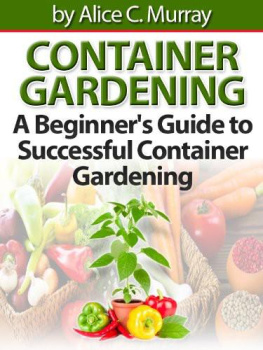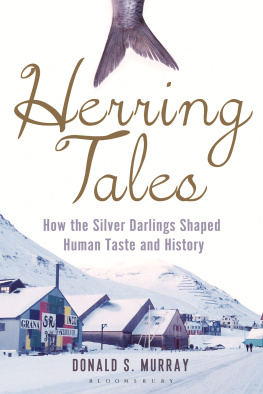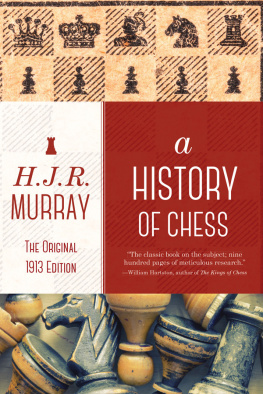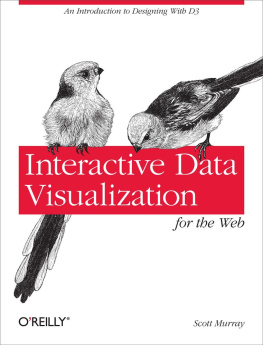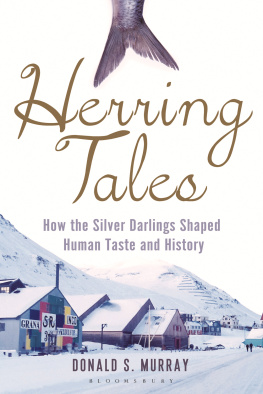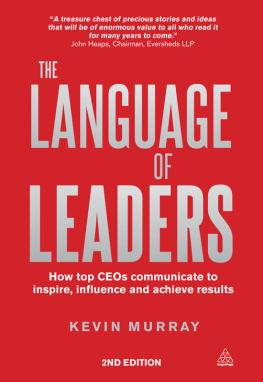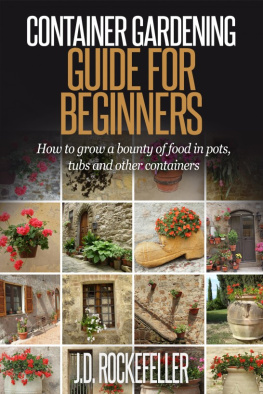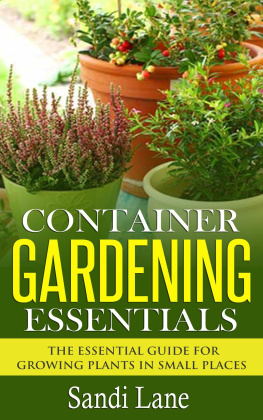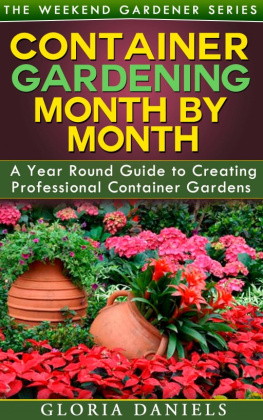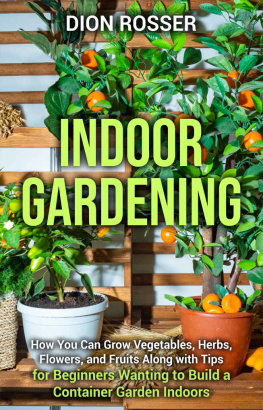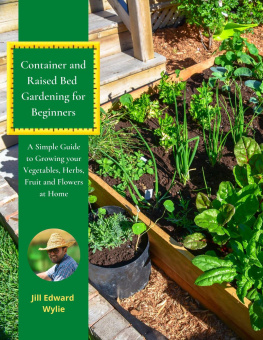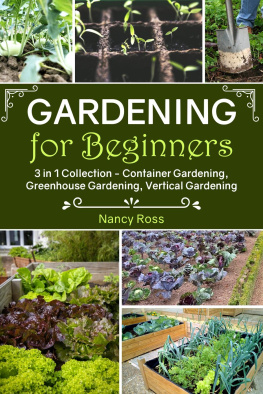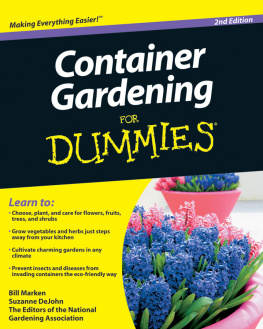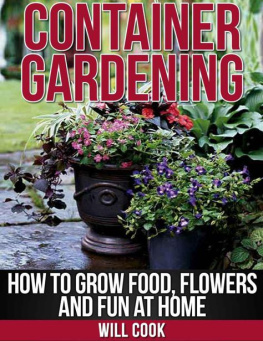Container Gardening
A Beginner's Guide to Successful Container Gardening
By: Alice C. Murray
Table of Contents
Copyright 2012 Alice C. Murray - All rights reserved.
This Kindle book contains material protected under International and Federal Copyright laws and Treaties. Any unauthorized reprint or use of this material is prohibited.
Unauthorized duplication or distribution of this material in any form is strictly prohibited. Violators will be prosecuted to the fullest extent of the law.
No part of this publication may be reproduced, stored in a retrieval system or transmitted in any form or by any means, electronic, mechanical, photocopying, recording or otherwise, without prior written permission from the author/publisher.
The author, publisher, and distributor of this product assume no responsibility for the use or misuse of this product, or for any physical or mental injury, damage and/or financial loss sustained to persons or property as a result of using this system. The liability, negligence, use, misuse or abuse of the operation of any methods, strategies, instructions or ideas contained in the material herein is the sole responsibility of the reader.
The material contained in this publication is provided for information purposes only!
Introduction
Some things truly never change. While growing up, we heard our parents constantly preaching to us about eating our fruits and vegetables. As adults, we thought we were rid of those annoying lectures. We never dreamed the responsibility of lecturing us on this importance of these foods was subsequently turned over to our doctor. After decades of having this thought drilled into our heads, we should have realized by now that maybe, just maybe, they knew what they were talking about.
Still, with today's hectic schedules being crammed with more activities than ever before, it remains next to impossible to have enough of the good stuff on hand as well as the time to convert it all over to a well-balanced diet. While nothing can be done to slow down the sands of time, there is plenty that can be done about making fruits and vegetables readily available to us.
If we have our own garden, it only stands to reason that we would be more likely to consume those foods, right? But there are some major problems that many want-to-be gardeners face.
One: lack of space.
Two: the know-how to till and prepare the soil for a garden.
Three: the equipment to make it all come together.
The solution? Container gardening.
If you are like most novice gardeners, you will likely cringe at having the fate of plants in your hands. But container gardening is different. With so much of the process carefully controlled, you can grow your own food and have fun doing it.
Even if you have a history of killing every plant in your home except those made out of plastic, you can be successful with container gardening.
Why go to all of the trouble when you can visit your supermarket and pick up anything you want? Because there are many advantages to growing your own food.
Benefits of Growing Your Own Food
Some people might be skeptical at the thought of growing their own food. Don't let the thought of being responsible for supplying many of your own vegetables sway your decision. This is actually a good thing. Once you recognize the many benefits that having your own garden has to offer, you will be on board.
Despite what you may believe, gardening is not that hard. Yes, it requires a certain measure of your time and a few resources, but in the end, what you reap will more than pay you back for what time and energy you have invested.
Consider the benefits that can be derived from having your own private garden:
You save money. Take a stroll through the produce section of your local supermarket and you will feel the financial pinch of the rising price of groceries. Most items fluctuate greatly depending on weather conditions, transportation costs, handling expenses, labor issues, foreign policy, etc. Face it: food prices are out of control.
Growing your own vegetables eliminates having the price of your food dictated to you by others. It gives you control over what you spend and keeps your grocery bill considerably lower.
History. Food bought in a supermarket generally comes with some designation of where it was grown. Other than that, you have no idea of the conditions behind the product. Other countries might be well-known for their fruits and vegetables, but you cannot be sure of the conditions in which they were harvested, packed and shipped. Foreign countries do not always have the best health guidelines when it pertains to food.
Poisons. Chances are you can almost bet that your supermarket food was sprayed with some type, or types, of chemicals and pesticides. But what kind and how often? You will never know.
Quality. Food grown by you will taste better because it has not been subjected to genetic alterations. It has not been changed in any way, which not only affects its quality and how it reacts to your body, but also the way it tastes, too.
Why Use Containers?
There are many advantages of using container gardening over conventional gardening. The most obvious reason is people simply won't go to the trouble to do all of the work associated with a conventional garden. Therefore, they make the choice of living without a garden, leaving the fate of their food up to their local supermarket.
Another reason for choosing the container gardening route is anyone can do it. They require a very minimum amount of space so it doesn't matter if you live in an apartment, a condo or even a house with a limited yard. Container gardens can adapt to fit any amount of space that you have available.
Besides convenience, container gardens offer many other benefitsover conventional gardening:
- You do not have to worry about such important issues as too much shade. You can place your containers exactly where they need to be in order to thrive. If your first location turns out to be less than adequate, simply move them to a more ideal spot.
- Since you pick the soil, it is always the right balance of nutrients. No more worrying about what your soil contains and what needs to be added in order to balance it. Soil can be purchased to your exact specifications.
- You do not need special equipment. Aside from a few simple tools, container gardening requires very little in the way of materials.
- You do not need a lot of space. Container gardening allows for compact gardening. One established tomato plant, for example, can produce enough tomatoes for an average family. One container usually means that the needs of one food product have been met.
- Convenience of location. Container gardening is a wonderful option because it can literally be accomplished anywhere. You can have a garden on your patio, on a deck, on your porch or your sidewalk. An advantage of using containers is that it doesn't even require a yard. If you live in an apartment, townhouse or condo, you can use your balcony or, if it applies, a rooftop.
- You do not need a farming background. Container gardening requires no special experience, no horticulture background and no formal training. Literally anyone can do it and be successful.
A Couple of Things to Remember
Containers are simple for gardening, but they still come with a few rules:
1. Drainage holes. No matter what size container you use, it has to have drainage holes. This prevents unnecessary moisture from building up in the bottom of the plant and encouraging mold or a rotting of the root system. Having proper drainage also encourages good root growth, which translates into a healthier plant. By preventing excess water from congregating around the root system, you allow oxygen to make its way in, supplying the plant with much-needed air.
Next page
